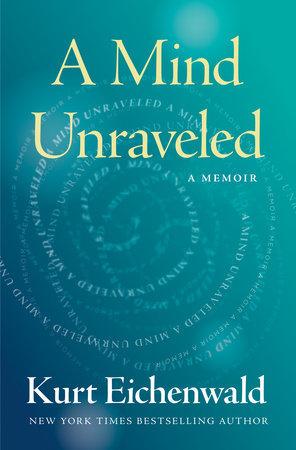He was 18 when he experienced his first grand mal seizure (as it was then called) as a senior in high school, noting that nothing in his “fortunate childhood” growing up in Dallas as the youngest of three siblings prepared him for it or the struggles that would follow. Eichenwald’s father was a “world-renowned specialist in pediatric infectious disease” and his mother was a nurse: The irony of their professional affiliations will not be lost on us as their son looks for help only to enter a madhouse of bad and sometimes tragically ignorant medical care. Not one to cast blame without also indicting his own complicity, Eichenwald observes early on: “To this day I believe that had I not been so deep in denial, much of my traumatic experiences in the years that followed never would have occurred.”

He starts Swarthmore in the fall of 1979 and suffers from a concussion while “goofing around” with one of his roommates, after which his friends notice that he “periodically zoned out” and had “staring spells.” When Eichenwald wakes up one day shortly before Thanksgiving to find himself in pain and a “disconnected state,” having fallen off his bed during the night, his father arranges for him to see a neurologist back in Dallas. Thus begins his first encounter with uncommunicative and maladroit doctors. Dr. Nicholson, who “exhibited the bedside manner of a termite inspector,” sends Eichenwald for a series of diagnostic tests, including a CT scan and an EEG, which result in a diagnosis of epilepsy (although he wrongly characterizes the seizures as petit mal). He prescribes Tegretol, an anticonvulsant, and when his young patient starts to question him about how the medication works, he quickly becomes impatient: “Now, don’t start feeling sorry for yourself. There are children dying from cancer, and they’re a lot worse off than you. You’re not going to die from seizures. Those kids could only wish they had epilepsy.” At the same time Nicholson warns him that he won’t be able to keep up at a college as “tough” as Swarthmore and counsels him to keep his condition a secret: “If you ever have to say anything about this, call it a seizure disorder. Never say epilepsy. The word scares people.”
In the months that follow, Eichenwald continues to fall down the dark well of his incompletely understood disease and to experience the “terrifying loss of control that accompanies convulsions” — which, in turn, leads to a “paralyzing, desperate dependence” on his neurologist, even if he happens to be someone who fails to return calls. Nicholson eventually adds another anticonvulsant called Depakene, never bothering to explain the possible side effects, which include impairment of blood cells. Amid his anxiety about his academic performance and the need to hide his illness from everyone but his roommates, Eichenwald discovers a curious upside: After a convulsion his college English papers go from being disastrous (“Your writing is grotesque” is the comment his first paper receives) to being “A”-worthy work, composed with “top-notch” vocabulary and perfect sentence structure. Although he isn’t clear what the connection to his seizures is, he wonders whether the convulsions trigger a smarter, clearer part of his brain. “This was the first of many times,” he notes, “I would marvel at the brain’s power, elasticity and secrets. I found it fascinating to read someone else’s paper, written by me.”
Perhaps the most painful of Eichenwald’s difficulties in dealing with his condition is the fact that his own father, despite his medical training, is in denial about the severity of his son’s condition, refusing to call it by its name and insisting instead on calling it a “seizure disorder.” It falls to Eichenwald himself, in league with his alarmed mother, to keep desperately looking for better and more informed care; the need for this is heightened when, after two years of taking “huge, unmonitored dosages” of medication, he ends up hospitalized in a dire, near-fatal state. “Both of your medications are at very toxic levels,” he is told by a doctor on staff he refers to only as “Dr. Eyebrows.” “They’re not medicines anymore. They’re poison. What your neurologist did is unforgivable. I’m sorry to be this blunt, but you have to know the truth. If we don’t move quickly, you could die.”
Needless to say, Eichenwald, being the trouper he is, survives being put through an excruciating bone biopsy and goes on to survive intermittent suicidal thoughts as well as more indignities: One doctor insists, on the basis of misinterpreting his EEG tests, that he is suffering from “a conversion disorder, a form of hysteria” rather than epilepsy, another that there is a “structural” underpinning to his seizures that renders them “idiopathic” (no known cause). Swarthmore, meanwhile, moves to expel him on the basis of a school psychologist’s report that he is suffering from an overlooked brain tumor and that he is not well enough to attend classes. Having finally found a neurologist, Dr. Naarden, who knows what he’s doing, and working with a small group of people who believe in him, including his psychiatrist and an advocate for the disabled, Eichenwald successfully fights the college’s decision and manages to graduate with his class, as he’s always dreamed of doing.

